Morgan’s Riflemen – The difference a small elite unit makes
- By Travis Pike
Share This Article
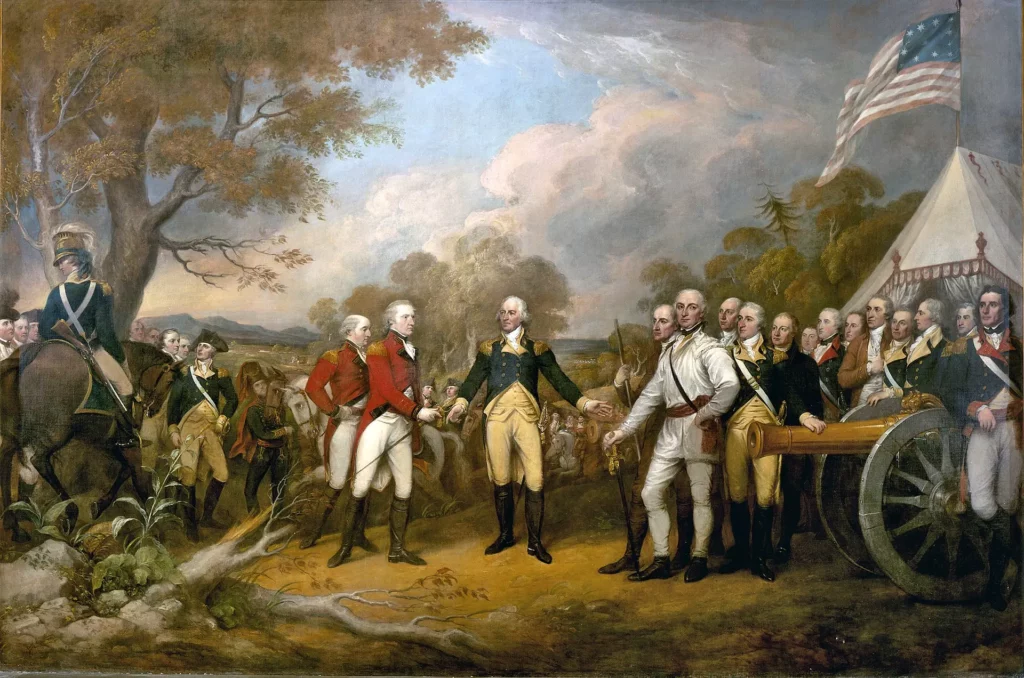
Morgan’s Riflemen (or Morgan’s Rifles) was a group of sharpshooting Americans who became one of the United State’s earliest elite units. They served as a light infantry force and distinguished themselves time and time again.
Daniel Morgan, the unit’s commander, grew up in Virginia. He was reportedly the rebellious type and became a teamster as a young man and worked as a civilian teamster during the French and Indian War. He once knocked a British officer unconscious. The British sentenced him to 500 lashes which would have been a death sentence for most men. However, Daniel Morgan was too stubborn to die: he survived the lashes and would later joke the British miscounted and only struck him 499 times. The event caused Daniel to disdain the British and likely guided him to being one of the most effective commanders of the American Revolutionary War.
Related: Everything you need to know about the US Army’s birthday
The shooting skills of Morgan’s Riflemen

Daniel Morgan received a commission as a captain in 1775 and was placed in charge of a small rifle unit established by the State of Virginia. Morgan had 80 enlisted and 16 officers under his command — these southern frontiersmen were all American and would become the basis of Morgan’s Riflemen.
They wore hunting shirts, a garment that allowed them to stand out and would soon cause them to be feared.
Once, they provided an exhibition of their shooting skills, with the Virginia Gazette reporting that “A man held between his knees a board 5 inches wide and seven inches long, with a paper bulls-eye the size of a dollar. A rifleman at 60 yards without a rest put eight bullets in succession through the bulls-eye.”
The unit didn’t carry muskets but the famed Kentucky rifles (also known as Pennsylvania rifle or longrifle) that were built primarily by German immigrants. Rifles are much more accurate than muskets because of the rifling in their bores that spins and better stabilizes the projectile.
Their rifles had long barrels and fired a relatively small caliber for the time. Their effective range was up to 250 yards, which was more than double that of a musket. Yet, they were expensive and had a slower reload time than muskets since their balls had to fit tighter into the bores due to the rifling. They also needed to be cleaned often due to fouling of the bore by black powder. However, they proved to be quite effective.
Related: 9 interesting facts about the American flag you never knew
Notable battles fought by the unit
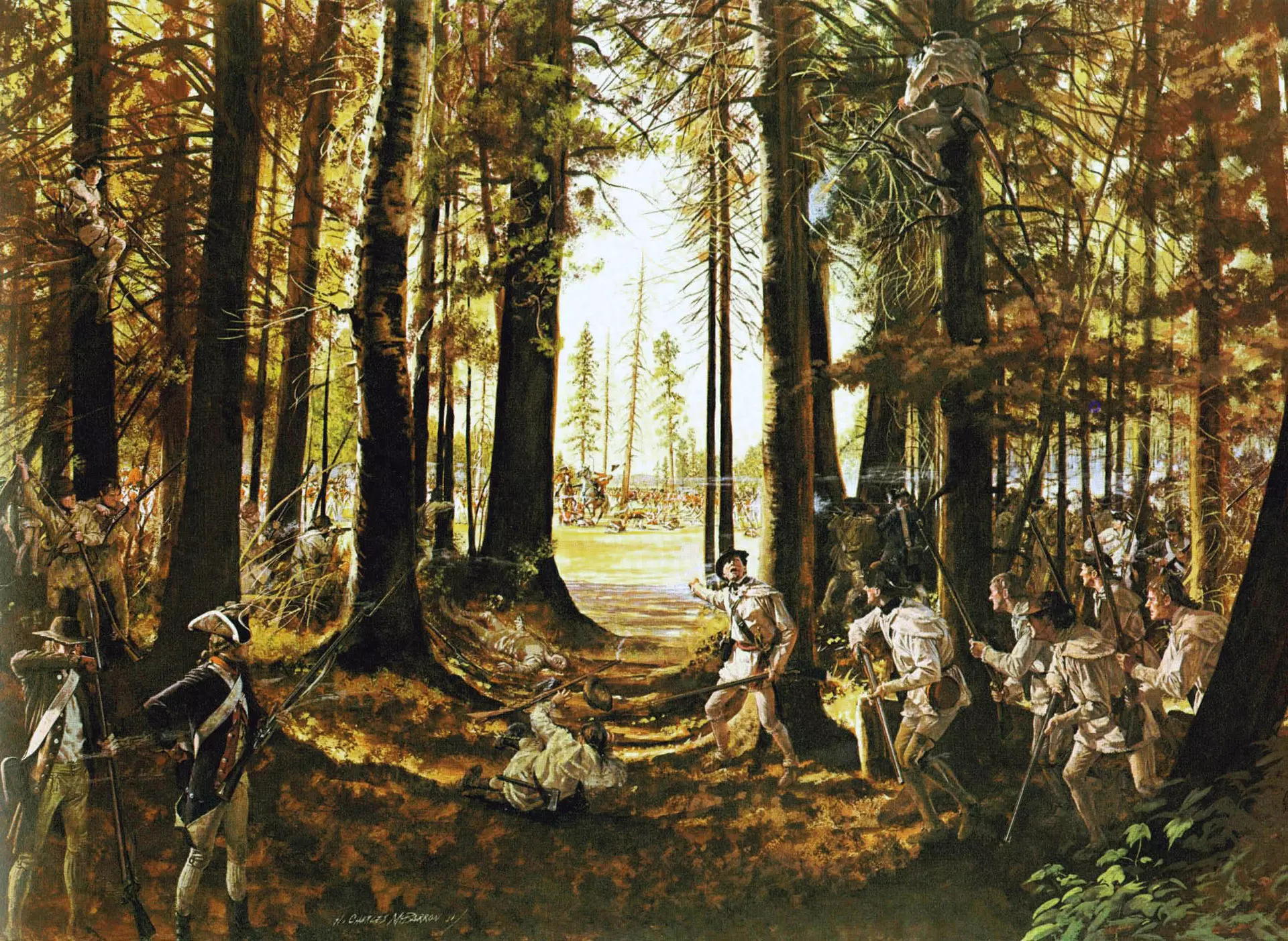
When the Revolutionary War broke out in Boston, Daniel marched his men 600 miles in 21 days to provide aid.
Morgan’s Riflemen found themselves crossing the country, toting their guns anywhere necessary to fight for independence. They fought in the Battle of Quebec, where the American forces faced a heavy loss, but Morgan’s Riflemen and Daniel Morgan were hailed as heroes. Morgan and many of his men were taken as prisoners and held until 1777.
In the Battle of Saratoga, Morgan’s Riflemen acted as a harassing force that continually attacked the Native American forces loyal to the British. The Native American forces were used as intelligence-gathering forces for the British and their harassment by Morgan’s Riflemen stopped them from collecting information. The elite American unit also drove an advanced British unit all the way back to the main enemy line and, in the main battle, attacked from the right flank, forcing a British retreat.
In the Battle of Bemis Heights, Morgan’s Rifleman clashed with the British forces, eventually trapping a British light infantry unit between themselves and a regiment under the command of Henry Dearborn. Another notable achievement of the unit was when Benedict Arnold ordered Morgan to eliminate the British General Fraser. One of the unit’s riflemen, Timothy Murphy, obliged by climbing a tree and firing three shots from 300 yards killing the man.
In the Battle of Cowpens, Morgan’s Riflemen distinguished themselves once more. Morgan set a trap and lured the British forces into an early charge. This led to a double envelopment. Morgan’s Riflemen even stopped their feigned retreat and fired point black into the charges. In less than an hour, Morgan’s Riflemen rendered the British forces ineffective.
Related: Martha Gellhorn: The only woman present on D-Day
Morgan’s Riflemen and their innovative tactics
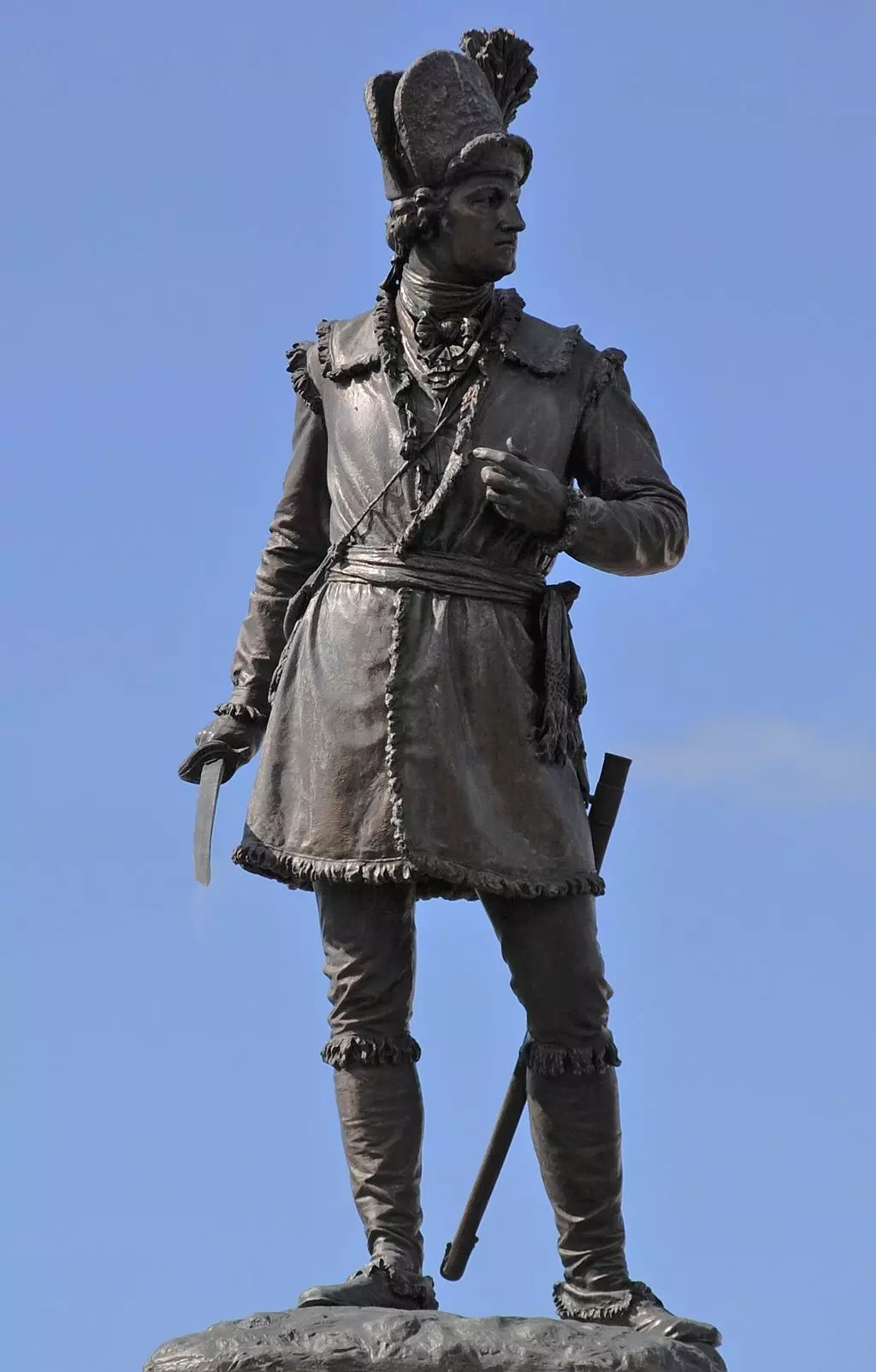
Another aspect that made Daniel Morgan and his riflemen stand out was their use of guerilla tactics: Morgan could think outside the box, and this made him a valuable asset.
Once, the elite unit was assigned with harassing Colonel William Howe and his men as they retreated through New Jersey. Morgan’s men attacked them from long range, acting as snipers. In that era, this tactic was unheard of. At other times his men would hit and run against Royal forces in New York and New Jersey. They would also dress as Indians to get close to the British and unleash hell before retreating.
Daniel Morgan would later serve in the government in the House of Representatives and eventually pass away among family in 1802. His men’s lasting legacy — he was also the inspiration for Mel Gibson’s character in the film The Patriot — is a testament to his tactical genius and his service to his country.
Feature Image: A painting portraying the surrender of British General Burgoyne after the Battle of Saratoga. Colonel Morgan, having led his riflemen in this victory, is shown in white, right of center. (Painting by John Trumbull)
Read more from Sandboxx News
- US Marines reveal their rules for the Robot Wars
- A networking app for military spouses: Meet Twelve Million Plus
- The CZ Scorpion – Proving that SMGs can shine
- The two armored vehicles that will define the Ukrainian counteroffensive
- I watched the Jarhead sequels so you don’t have to, and this is what I think
Related Posts
Sandboxx News Merch
-

‘AirPower’ Golf Rope Hat
$31.00 Select options This product has multiple variants. The options may be chosen on the product page -

‘Kinetic Diplomacy’ Bumper Sticker (White)
$8.00 Add to cart -
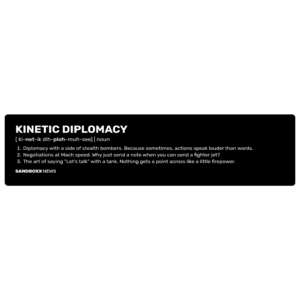
‘Kinetic Diplomacy’ Bumper Sticker (Black)
$8.00 Add to cart
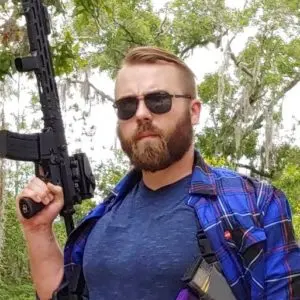
Travis Pike
Travis Pike is a former Marine Machine gunner who served with 2nd Bn 2nd Marines for 5 years. He deployed in 2009 to Afghanistan and again in 2011 with the 22nd MEU(SOC) during a record-setting 11 months at sea. He’s trained with the Romanian Army, the Spanish Marines, the Emirate Marines, and the Afghan National Army. He serves as an NRA certified pistol instructor and teaches concealed carry classes.
Related to: Breaking News, Military History
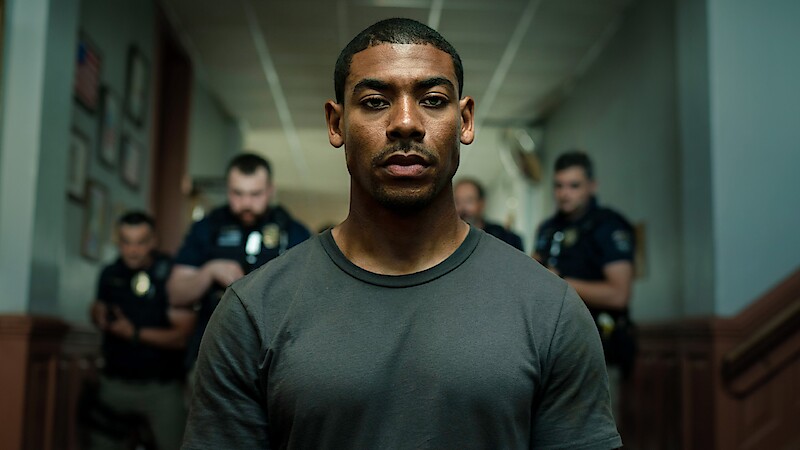
What does a Marine veteran think of Netflix’s ‘Rebel Ridge’?
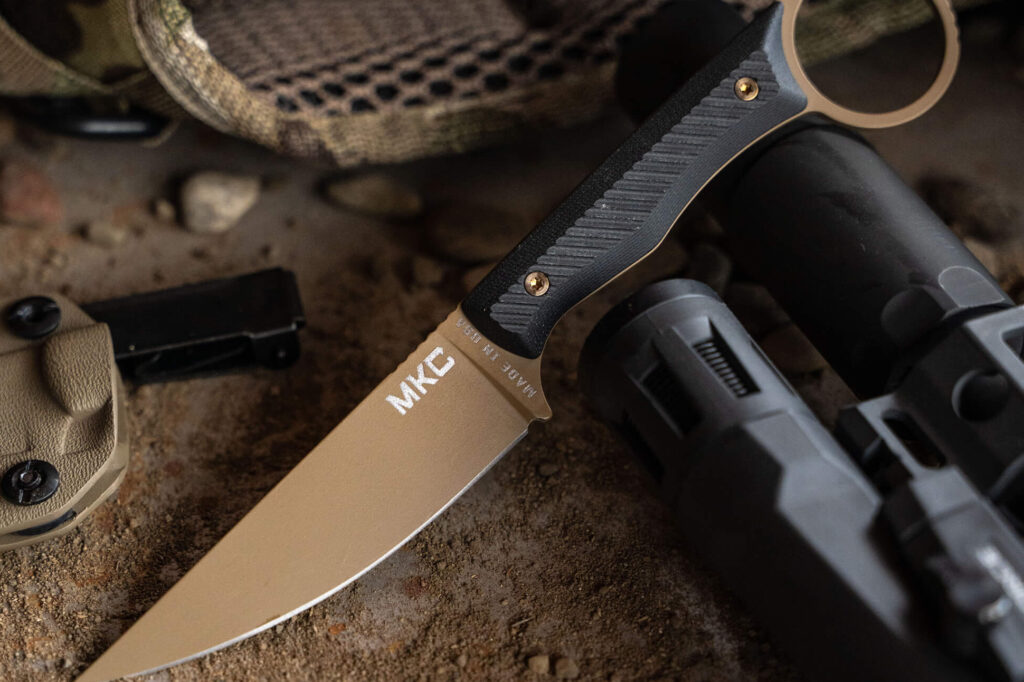
Montana Knife Company enters the tactical knife realm
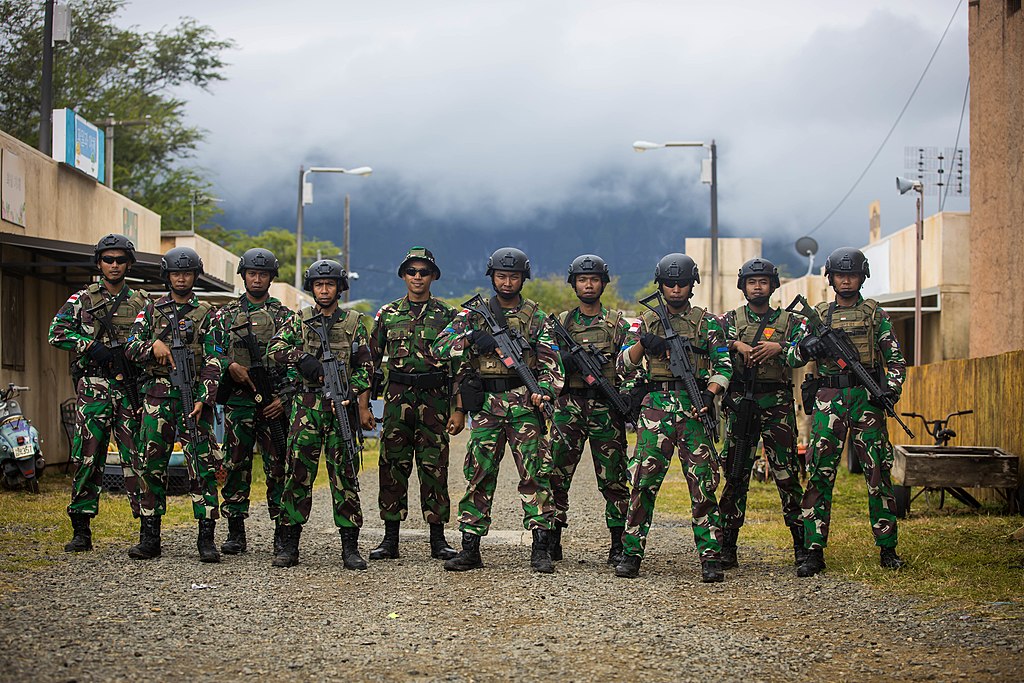
Indonesia’s Pindad SS2 – Service rifles from around the world

Semper Fi: The Marine Corps is turning 249 years old. Let’s talk about its birthday celebrations
Sandboxx News
-

‘Sandboxx News’ Trucker Cap
$27.00 Select options This product has multiple variants. The options may be chosen on the product page -

‘AirPower’ Classic Hoodie
$46.00 – $48.00 Select options This product has multiple variants. The options may be chosen on the product page -

‘AirPower’ Golf Rope Hat
$31.00 Select options This product has multiple variants. The options may be chosen on the product page -

‘Sandboxx News’ Dad Hat
$27.00 Select options This product has multiple variants. The options may be chosen on the product page
